— A New York steak house, which only existed as a Google listing, finally opened for one night. The story reminds me of a fake restaurant that managed to become the number 1 rated place on Trip Advisor in London and that served £1 microwaved food on the only night it was open. (via)
Posts from September 2023
Super League: The War for Football
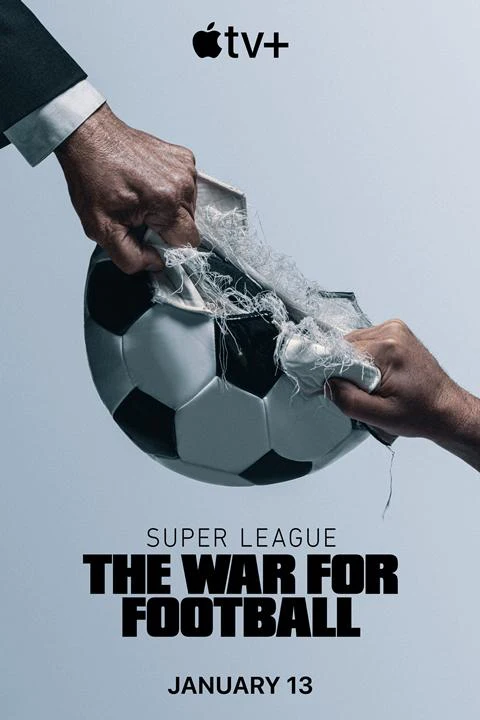
— Let’s not pretend the idea isn’t appealing: A league with the best clubs from Europe, the best players constantly facing each other, banging fixtures every week. I’ve created plenty such tournaments on FIFA. But the idea is best left in the virtual world on a Playstation. In reality, such a construct would have wide-ranging consequences on football, further accumulating wealth with a few big clubs, leaving smaller teams struggling for financial survival.
There’s one thing this documentary makes abundantly clear: Not one of the men running football at the highest levels is in it for the love of the game but out of pure self interest.
Andrea Agnelli puts in succinctly:
It’s a business proposal. We’re not in it because we’re emotionally involved. We’re involved because we believe we can improve the system.
The driving forces behind the league, Andrea Agnelli of Juventus, Joan Laporta of FC Barcelona, and Florentino Pérez of Real Madrid, they all lead football clubs, which struggle financially, so obviously they favour a guaranteed yearly income.
Gianni Infantino tells people what they want to hear. He wants more influence on club football but more importably he wants to stay in the top position in FIFA. He needs the support from UEFA members so he’s against the league. Nasser Al-Khelaifi saw an opportunity to widen his influence across European football by aligning with Čeferin and becoming chairman of the European Club Association (ECA). Aleksander Čeferin was against super league to save his position. If there was a way to extract more money from the fans without upsetting them he’ll support it. His half-hearted approach towards financial fair play in European football says it all. If he was serious about protecting small clubs, he’d have to confront his new ally Nasser Al-Khelaifi and put screws on how much PSG can spend.
And Boris Johnson found a welcome distraction from the political pressure he faced at the time after repeatedly making bad decisions.
The documentary series gives room to different views and opinions, moreover it show football is in very bad hands. Super League may not have happened this time, but it may well happen in five or ten years.
Creators: Connor Schell, Jeff Zimbalist.
— The Projection Collection, basically trading cards for map nerds, will be re-printed. Order your set via Kickstarter now.
— An interactive map shows the areas where smoking marihuana will be prohibited in Germany once it’s legalised, ruling out large proportions of urban areas. In my hometown, people still need to find quiet spots outside the city to chill out, just like we did 20 years ago. Germany’s law-makers never disappoint, always finding a way to muddy new laws so what should be legal still isn’t.
— Two types of thinking people dominate in the workplace: Talkers and writers:
In most orgs, talkers are overrepresented among the leadership. This is not because talking offers any advantages over writing in terms of thinking power. Rather, it’s that most of our models for leadership—meetings, town halls, presentations, interviews—privilege talkers.
Another distinction suggests itself in the same context. At work there are talkers and doers. There are people who talk about work and make plans and there are people who do the work. The talkers aren’t necessarily managers, but they are the ones getting ahead more quickly.
— It’s been twenty years since the first episode of Peep Show aired. Still is the most original and funniest sit com ever produced.
— Hundreds of declassified videos from nuclear weapons tests are available on Youtube. (via)
— Another useful single-serving site: Is Henry Kissinger Living? Indeed, he is alive.
Heidelberg
— All of my visits to Heidelberg are the same. I arrive, see friends, hang around their houses, we go for dinner, have drinks. Wake up a little hung over. Repeat until I make my way to catch train to go somewhere else.
I lived in Heidelberg for three years until I left for London ten years ago. This was my first visit since where I actually spent time in Heidelberg, walking around, visiting familiar places, taking in the place.
The university campus where I used to work has, in its centre, a group of connected, concrete office blocks that were build in the 1960s. They look like the perfect set for Netflix production about soviet scientists from the 1980s. Great for taking photos but an eyesore for many and one local pointed out.
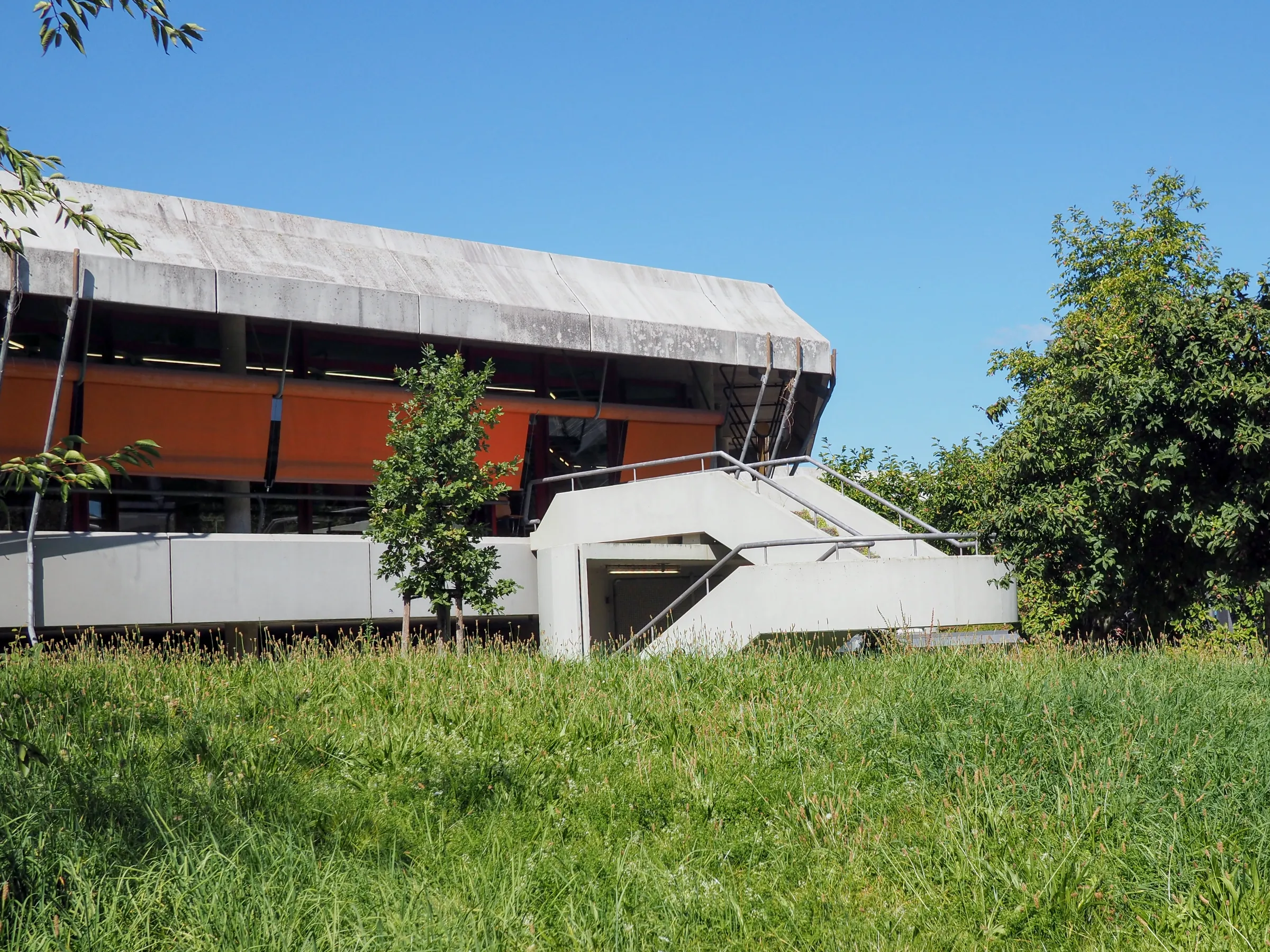


The architect’s brief must have been to build a dystopian answer to Heidelberg’s picturesque old town; sandwiched between the river and green, steep hills, the castle throning over the town as a constant reminder not to mess with the French.
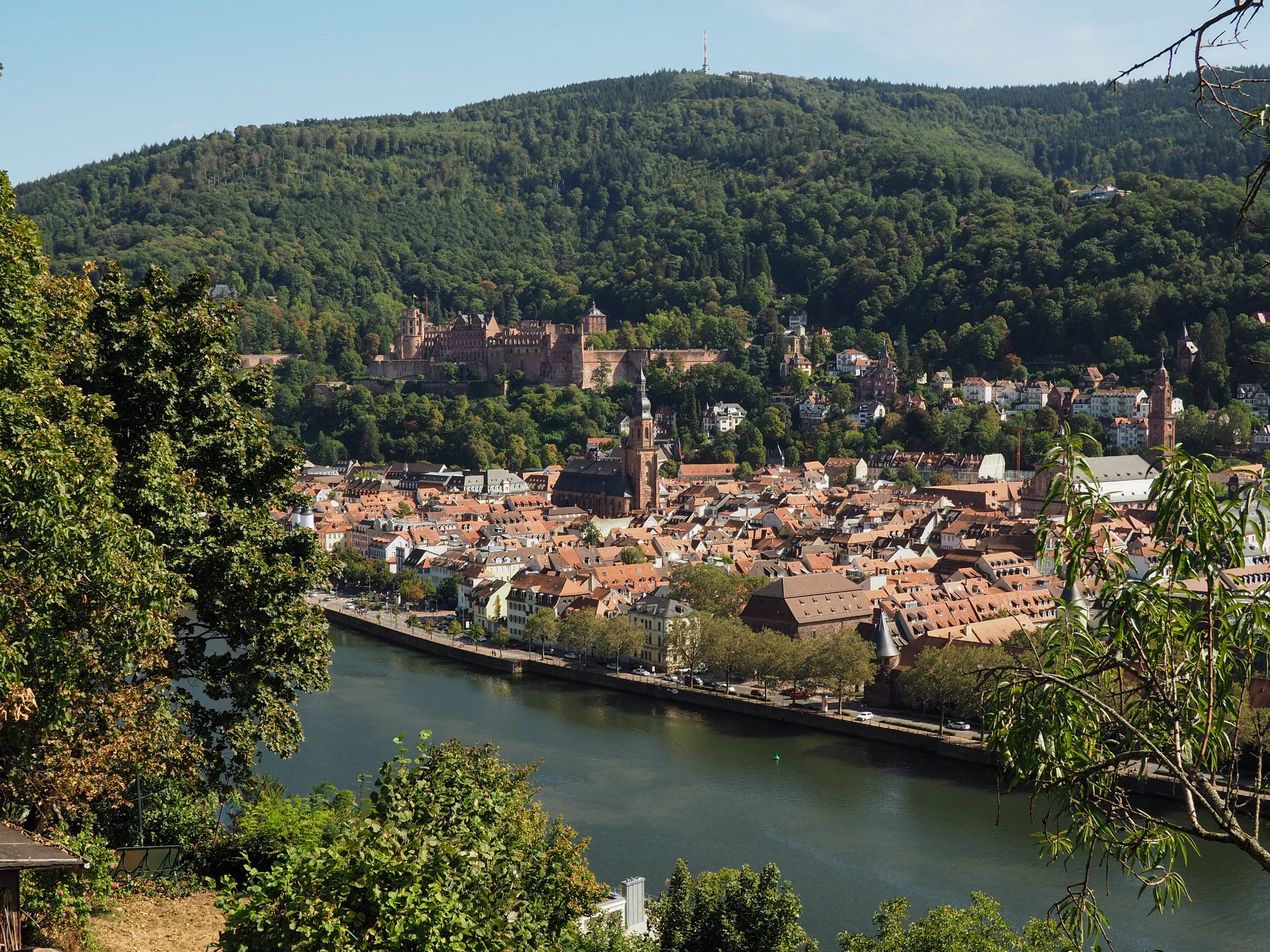
Visiting Heidelberg evokes similar contradicting feelings. I liked living here, I made good friends, many of which I still speak to regularly. But I never arrived, I never considered it my home.
— A group of sharks lived for 17 years in the pond of a gold course in Australia; after they were swept into the lake during a flood in 1996.
— The Markup finds that Twitter throttles links to competitors. “Users […] are made to wait on average about two and a half seconds after clicking on links to Bluesky, Facebook, Instagram, and Substack, the analysis found. That’s more than 60 times longer than the average wait for links to other sites.”
— A literary history of fake texts in Apple’s marketing materials. “I’m talking about the mocked-up texts and emails Apple puts together to demonstrate new messaging features in its operating-system updates, presumably written by some well-paid professionals in Apple’s marketing department. These eerily cheery, aggressively punctuated messages suggest a alternate dimension in which polite, good-natured, rigorously diverse groups of friends and coworkers use Apple products exactly how they are designed to be used, without complaint or error.”
— 50 Years Later, Is There Anything Left Of Hip Hop?
Now there’s a universal voice, and the verses sound and feel like a string of buzzphrases. Any song could be by anyone from anywhere. The songs convey a shallow, one-size-fits-all black cool. It’s hip hop muzak. On another podcast JPEGMafia and Danny Brown talked about how impossible the old methods of beat-making were, and how layered the rapping. Hip hop these days can be made more quickly, easily, and cheaply, and can spread farther faster. Anyone, anywhere can do it, without vetting, and find an audience.
This resonates a lot. I don’t understand today’s rap music. Today’s rap is cheap, both musically and lyrically. It’s created to sell, not to create or to educate. Rap has lost its soul.
— A clock where the time is made of news headlines from the Pudding. (via)
The Kagi Smallweb
— Kagi’s Smallweb shuffles posts from independent websites, mostly blogs. It’s a nice idea, I love this way of discovering new authors and content.
Kagi also announced that the search engine will prioritise independent content in their search results. It sounds great in principle. I want a Web that consists of more independent and experimental sites, one that is less commercialised. One way to build this is to highlight content independently published content. But it feels wrong. A search engine should provides the most relevant results first, not the ones from writers we likes most because of how they publish.
— Firefox 1.0 New York Times Ad. I remember how excited I was Firefox 1.0 came out. Finally a good, secure, free browser I could recommend to friends.
Lisbon
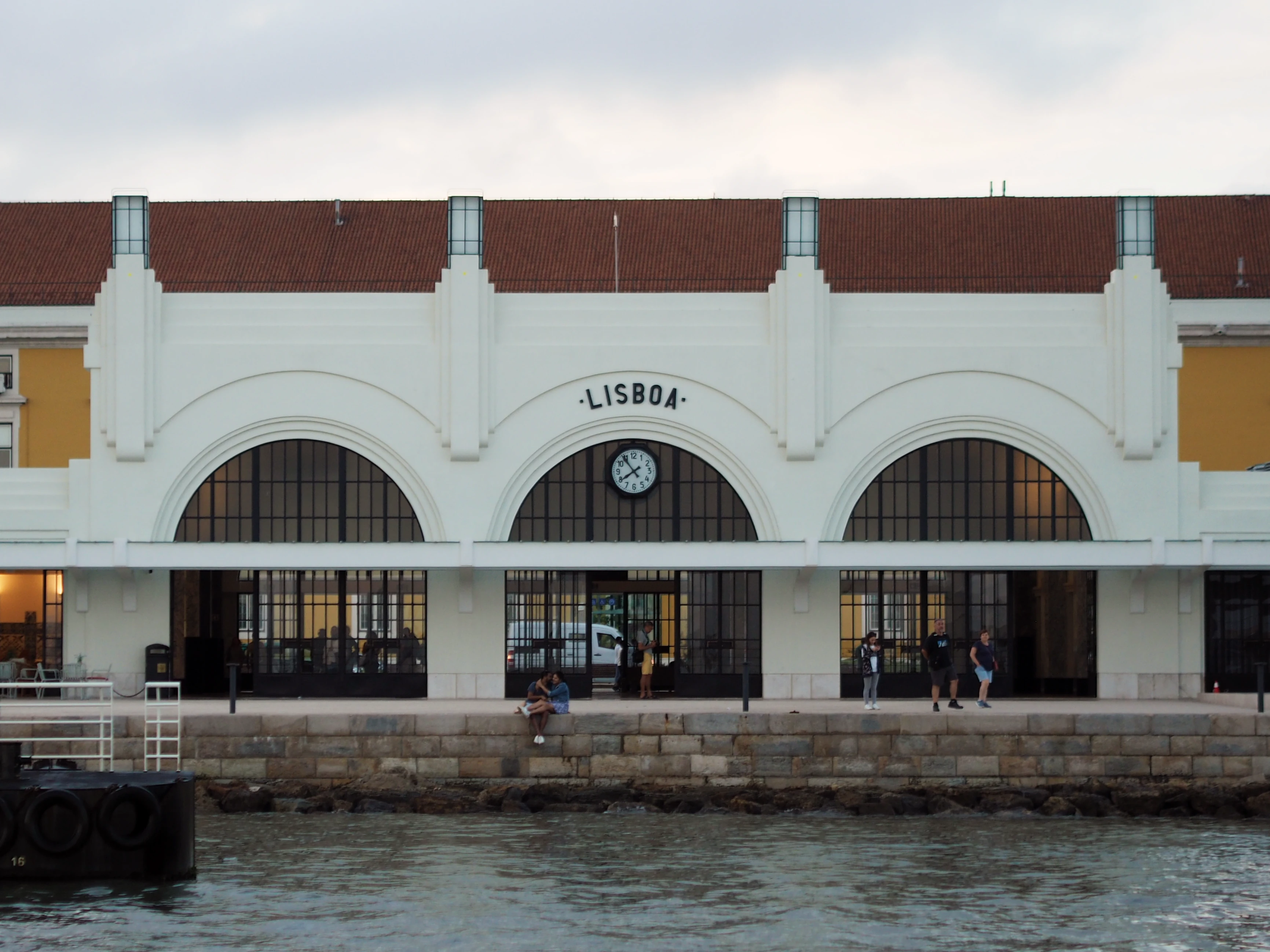
Lisbon is a strange place. Tourists love its picturesque hills and the cobblestoned alleyways meandering in-between old, beautifully tiled buildings. It’s the perfect Instagram holiday destination. But Lisbon is too small for all those people coming off the cruise ships. It’s narrow roads are too crowded, people everywhere trying to avoid stepping in dog shit and dodging the rumbling trams and cars. So many cars on so little space. Lisbon could be the perfect walkable city if only it was pedestrianised beyond the innermost parts of the city. Still, it’s worth visiting—only to enjoy octopus for dinner, Ginjinha for desert and overdose on pastel de natas during the day.
Halt and Catch Fire
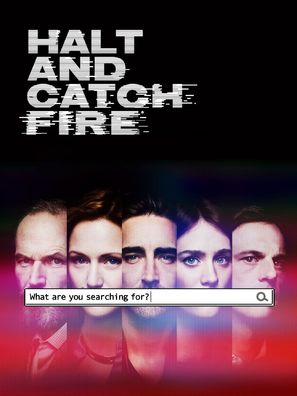
— Halt and Catch Fire is one of the shows that have developed an ardent following over now but never enjoyed the level of commercial success of other shows. It seems people can’t relate to a bunch of nerds on TV building computers or making web sites discoverable.
Season 4 really hit home for me, because it reminded me of the time I first went online:
But in its final season, “Halt” managed to convey a sincere nostalgia for the optimism of the early Web. Those crappy early HTML pages, with their corny cartoons and lists of links, were doors leading to endless other doors.
Yes. Grey backgrounds, serif fonts, table layouts, blue (as in #0000ff) hyperlinks, the complete lack of white space. This is what the Web looked like when I went online for the first time. Seeing the design and the excitement for the early Web portrayed in Halt and Catch Fire, I developed a nostalgic urge to write some HTML in notepad, slap on some font attributes, and push the whole thing online using FTP.
(2014-2017) Creators: Christopher Cantwell, Christopher C. Rogers. Cast: Lee Pace, Scoot McNairy, Mackenzie Davis, Kerry Bishé, Toby Huss.
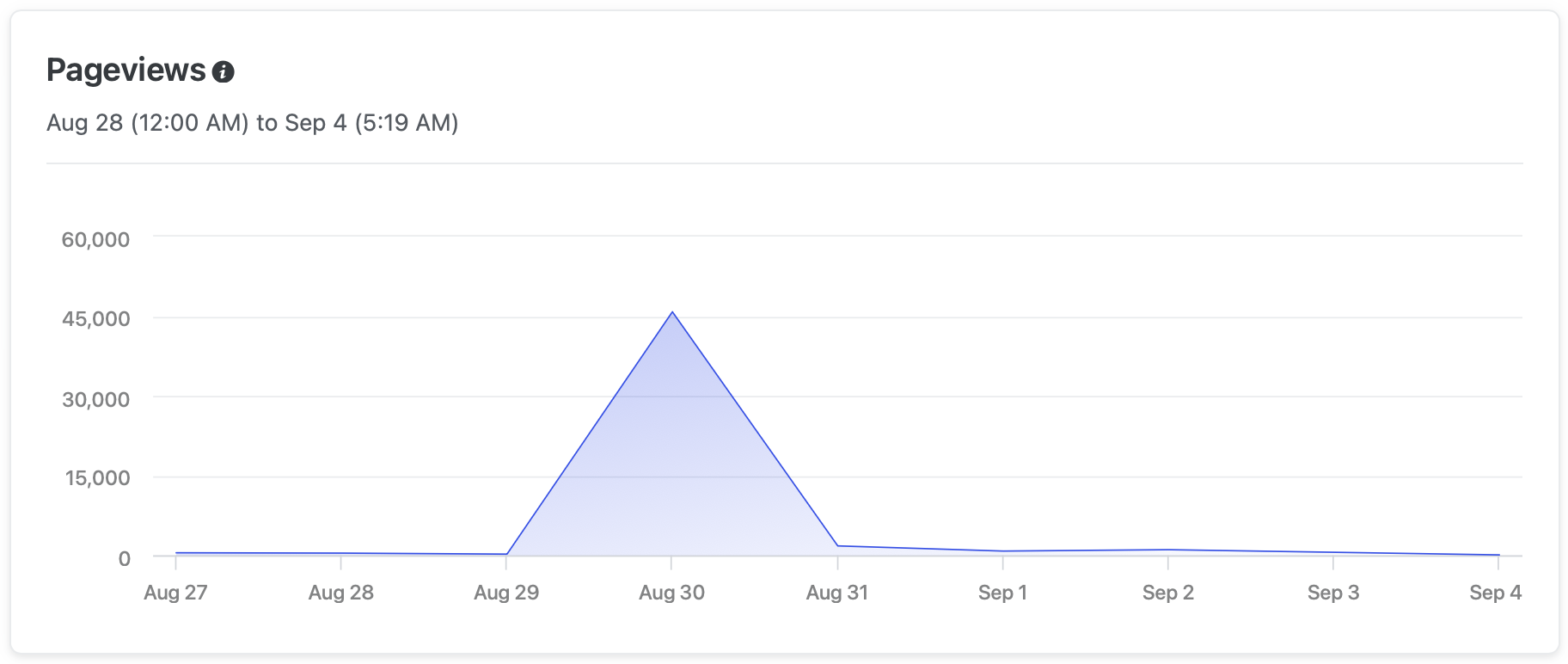
One of my sites became popular on Hackernews for a day.
The Web Still Connects
— I needed to replace the carriage wheels of a sliding door in my house. There were no labels or any other information that would give away what make and model of door hinges I’m looking at. Using the Web, however, I could still find what I needed:
- I took a photo of the part that needed replacing and uploaded in to Google’s image search.
- In-between a million similar results, none of them quite matched my sliding door wheels, I found a nine-month old reddit thread from a user looking for exactly the same part. Another user posted the make and model name as a response to the thread.
- Another Google search, and lo and behold, a kitchen warehouse sells that part just 10 minutes down the road from me.
The Web is still the most efficient and convenient research tool we have. There’s always someone out there who faces the same problem you’re facing, and another person has the solution. Despite all the SEO rubbish, AI content and social-media arguments, the Web still connects people.
— Pointing your finger at the lines of a text you’re reading helps you read faster. “We read 25 to 50 percent faster when we use our finger. At the same levels of comprehension.”